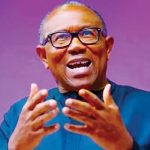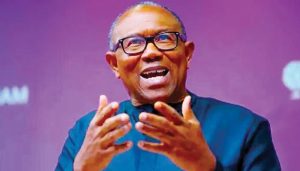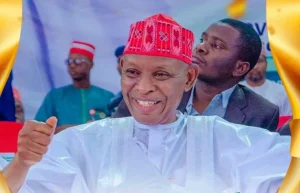By Ihechukwu Sunday
Nigerians were taken aback when on April 3, the Nigerian Electricity Regulatory Commission, NERC, raised the electricity tariff for customers enjoying 20 hours of power supply. The implication of the new arrangement is that customers on Band ‘A’ classification believed to be enjoying 20 hours of power supply will now be paying N225 kilowatt of electricity per hour instead of the old rate of N68 kilowatt per hour; an increase of about 300 percent.
According to the Vice Chairman of NERC, Musiliu Oseni, the increase would only affect 15 percent of the electricity consumers in the country.
NERC Service-Based Tariff, SBT, scheme classifies consumers based on the number of hours of electricity supply per day.
The SBT, on November 1, 2020, classified consumers into Bands A to E as follows: Band A, minimum of 20 hours; Band B, minimum of 16 hours; Band C, minimum of 12 hours; Band D, minimum of 8 hours and Band E, minimum of 4 hours.
“We currently have 800 feeders that are categorised as Band ‘A’ feeders, but upon reviewing those feeders’ performance, the commission has now reduced it to below 500. This means that 17 percent now qualifies as Band ‘A’ feeders. Those are the feeders that are currently meeting the average 20 hours average.
“And in that order, the commission has approved a rate review of N225 per kilowatt hour for just below 15 percent of the customer population. So, that means less than 15 percent of the customers will be affected. The commission has issued an order which is titled April Supplementary Order taking effect from today,” Mr. Oseni said.
Since the announcement was made, Nigerians have continued to react. A segment of the populace believes that the hike would only worsen the economic woes of many households in Nigeria. According to this school of thought, the hike would have indirect negative impacts on the public as manufacturers who would be on the Band ‘A’ would not hesitate to shift the burden to consumers, who are already feeling the impact of the current economic hardship.
There are those who believe that the hike could equally lead to loss of jobs as some manufacturers may not be able to cope in the competitive market that the new development would engender. The argument by this group is that prices of locally manufactured goods will be much higher than their foreign counterparts, and if that becomes the case, consumers would prefer foreign made goods, and that would automatically lead to some local manufacturing companies closing shops. When that happens, they argued, workers would be laid off, thereby compounding the unemployment situation in the country.
Generally, Nigerians are not taking this latest development lightly considering the fact that the same NERC had in January promised Nigerians that the government would pay as much as N1.6 trillion to subsidize electricity in the year 2024.
But in February, the government made a volte face, claiming that it had become very difficult to sustain subsidies on electricity in the country, and the result is the latest hike.
Nigerians have argued that the hike in electricity tariff was another way of punishing Nigerians as the development would only aggravate the harsh economic situation of the people.
According to the National Union of Electricity Employees (NUEE), the new electricity tariff increase literally means further exploitation of the Nigerian masses who are already heavily burdened by the harsh economic situation in the country.
The electricity workers’ union insisted that the sensibility of the increase was begging for an explanation because there hasn’t been any meaningful improvement since the privatisation of the power sector. The union further noted that the country has an installed capacity of about 14,000MW, but only generates about 4,803MW, even when the country needs at least 30,000MW to reach sufficiency.
The NUEE’s acting General Secretary, Dominic Igwebike, described the hike as absurd, saying, “The recent hike in electricity tariff from N68 /kwh to N225 /kwh is absurd in a country where the majority of the masses are grappling with basic survival and an electricity access rate of about 55 percent. The hike in the electricity tariff is grossly detrimental to the economic diversification, growth, and well-being of Nigerians.
“The justification given by NERC is that the hike is attributed to only Band ‘A’ consumers, who make up only 15 percent of the electricity consumers and utilise 40 percent of the nation’s electricity consumption. It begs to understand the sensibility of the person(s) that uttered such a statement purporting that it would not affect the general public.
“They need to answer these questions: Who are the Band ‘A’ consumers? What do they do? Who are the customers of the Band ‘A’ consumers? Who bears the brunt of the electricity hike?”
The trade union further argued that the Nigerians masses would be the ones that will be most affected by the new tariff. “Nigerians are the customers and end-users of the Band ‘A’ products and services. The additional costs will be transferred to the common man, so they are indirectly being exploited, notwithstanding their dwindling purchasing power and increasing impoverishment.
“Let’s look at these two scenarios: 1. Company A, uses 1000 kwh of energy in manufacturing and works for 24 hours a day. With the current hike, the company’s daily energy cost will increase from N50,592,000 to N167,400,000, which is an additional direct cost of N116,808,000; that is 231 percent, not to mention the increase in the cost of their inputs as the cost of those will also be increased by the producers to accommodate their own increase. The price of Company A in Band ‘A’ products will go up by about 300 percent and those in Band Z, where there is no transformer will buy at the increased price. If they buy at a higher price, they are the ones paying the almost 300 percent increase, not the manufacturer purported to be taxed.
“Company B, increased the price of their products in line with their new economic reality. Consumers don’t have the purchasing power to buy at the new rate, Company B will close down. As Company B closes down, some of its peers facing the same economic challenge will follow suit, and then unemployment will increase. If that happens, insecurity will be on an upward trend, then, the government will spend more than the money made in fighting insecurity which we haven’t been able to get hold of.
“The increased cost of goods will make Nigerian-produced goods unattractive as imported and smuggled items will be far cheaper than its foreign counterparts. People will resort to those goods, thereby fueling the economy and employment situation of the countries of import. Our manufacturing and business sectors will become comatose.”
“This is why the US, UK, France, Germany, and all developed economies support their factories with billions invested in power subsidies. Why is Nigeria different? Electricity in Egypt is an average of N21.68 per kwh, and in South Africa, it is N226 per kwh. The minimum wage in Egypt is N78,360 while in South Africa it is N328,395. The minimum wage in Nigeria is N30,000 while the new electricity tariff is N255 per kwh. A country that genuinely has the interest of its people at heart and wants to grow will ensure that the real sector is given the most support it can get, not putting a nail in its coffin,” the union stated.
It lamented the Minister of Power and the NERC did not consult with the stakeholders in the sector before the increase. The union accused the Minister of Power of relegating himself to the position of the spokesperson for the DISCOs, as he tried to justify the Cost Reflective Tariffs. The Union wondered what has happened to the Service Reflective Tariffs as it relates to consumers.
The NUEE stressed that the current energy policy was not clear to its members and demanded that the new tariff hike should be withdrawn.
“We, as a stakeholder, don’t know the energy policy of this present administration. As a critical stakeholder in the power sector who is concerned with Nigerians getting constant and affordable power supply, we state categorically that the hike in the electricity tariff is not beneficial to Nigerians and should be withdrawn,” it stated.
In the same vein, the Organised Private Sector of Nigeria, OPSN, has also condemned the hike, warning that over 65 percent of private businesses, especially the manufacturing firms and SMEs, could be forced to shut down due to the high electricity tariff.
Speaking on behalf of the group, the Director General of the Manufacturers Association of Nigeria (MAN), Segun Ajayi-Kadir, noted that OPSN had received numerous complaints from its member-companies concerning the hike without the required and proper consultations with the private sector.
He noted that the sudden hike amid inadequate electricity supply was inimical to the competitiveness of Nigerian products and businesses and would further exacerbate the impact of high cost of production.
His analysis of the impact of the hike to N225/kwh on the cost profile of a medium sized company using 700kw revealed that the firm would need to pay about N1.4 billion per annum (700 x 225 x 24 x 365) for electricity.
He noted that with the new tariff of N225/kwh, Nigeria now ranks third after Germany and United Kingdom on the list of countries with high electricity cost; a development he described as worrisome considering the fact that the electricity to be supplied is not adequate.
He lamented that the hike was coming at a time when macroeconomic instability, infrastructure deficit, and other supply side constraints are limiting the performance of the productive sector. The MAN boss noted that the astronomical increase was against the MYTO Order referenced NERC/2023/05, which valued the cost-reflective tariff at N114.8/Kwh (determined using exchange rate of N919.39/$1).
“It also does not reflect the current exchange rate reality that has seen the Naira appreciate by 62.95 percent above the dollar in the last one month,” he added.
The OPSN comprises top Business Membership Organisations, BMOs; Manufacturers Association of Nigeria, MAN; Nigeria Association of Chambers of Commerce, Industry, Mines and Agriculture, NACCIMA; Nigeria Employers’ Consultative Assembly, NECA; Nigeria Association of Small Scale Industries, NASSI; and Nigeria Association of Small and Medium Enterprises, NASME; representing more than five million businesses in Nigeria.
Following the submissions from member-companies, the MAN DG said the OPSN was constrained to state that the astronomical hike in electricity tariff at this difficult time was inimical to the survival of businesses and would lead to unprecedented downturn in the productive sector of the economy.
He said: “It will have negative trickle-down effects and certainly impoverish Nigerians. The unwarranted increase will worsen the upward swing in inflation, aggravate the pressure on the disposable income of the average Nigerian and lead to closure of many private businesses.
“The cumulative effect will be an escalation of the current high level of unemployment and insecurity in the country.”
The OPSN, therefore, called on the government to suspend the current hike in electricity tariff in the interest of Nigerians and the country’s economy.
Also contributing to the hike in electricity tariff, the President of the Middle Belt Forum, MBF, Dr Pogu Bitrus lamented that the hike would only put pressure on the economic woes of the country. “We know that it is not for everybody; it is for the people who enjoy, according to them, electricity more than others.
“In Abuja, it appears it is affecting the people around Maitama and Asokoro areas or thereabout, but in the long run, these are the people who also own the means of public transport, aircrafts and others.
“They are the upper echelon of the society. Although on the surface value, it doesn’t affect the lower cadre of the people but when they feel the pinch, they will increase the cost of things and it will still affect the common man, so the economic pressures will continue.
“I don’t know how much the government will save from such a venture in the first place because anything that is not going to rake in significant monetary value for the government to be able to take us out of the economic woes, and also bring about development in the country, is not worth doing,” he said.
He stressed that as far as I was concerned, what the government needs to do is to get the country out of the economic woes, but expressed doubt if the policy would take the country out of its economic woes.
He said: “What the government is doing with regard to strengthening the Naira is good because it will certainly bring the cost of things down and things will start to be cheaper, as we have already seen in some goods, whose costs have come down.
“So, as far as I am concerned, the tariff hike is not an economic policy that will improve the economic situation in the country. And if I were one of those who advise the president, I will tell him that the hike is not worth it, because how much is he going to rake in, and how many people are in Band A? Majority of the people are in the other lower bands.”










More Stories
Obi prays for God to grant Soludo greater heights Chuks Eze The presidential candidate of the Labour Party (LP) in the 2023 general elections, Mr Peter Obi, has called on the Anambra State Governor, Chukwuma Soludo to show humility, gratitude and compassion, following what he described as an ‘unfortunate and bitter’ outburst by the governor. Speaking to journalists at the just-concluded Nigeria Guild of Editors meeting at the NAF Conference Center, Abuja, Obi congratulated Soludo for securing a second tenure and urged him to appreciate God’s mercies by responding to victory with grace rather than resentment. Obi’s remarks came after Soludo provoked controversy during his certificate-of-return ceremony, where he mocked his critics by calling Obi a ‘frustrated politician without a club’ and accused him of damaging the education system in Anambra. “I feel compelled to respond because if I do not, I will be accused of dodging the question,” Obi said, expressing surprise at Soludo’s remarks. “On an occasion meant to celebrate his certificate of return, instead of thanking Almighty God for granting him a second tenure; a moment to demonstrate love and magnanimity, he chose to show bitterness and resentment. It was deeply unfortunate.” Obi clarified his involvement in the recent Anambra election, saying, “I only attended three public events with the Labour Party candidate, strictly where I was invited. At none of these events did I mention anyone by name or meet with traditional rulers, market leaders or any other group to discuss candidates. There was nothing I said to warrant controversy or speculation,” he stressed. Reflecting on the Election Day, Obi recounted how he quietly fulfilled his civic duty, conscious of the weight of responsibility that comes with leadership. “I witnessed irregularities and disruptions that could have easily escalated into chaos,” he said. “When outsiders attempted to cast votes in our community, I stepped in and urged my people to remain calm and allow them to act peacefully. In that moment, I was reminded that integrity must always take precedence over politics. True leadership is measured, not by the contest for power, but by the courage to uphold fairness, restraint and the dignity of our people, even in the most trying circumstances.” Addressing Soludo’s mocking remarks, he used a vivid metaphor from football to clarify his perspective: “On the day of the election, journalists approached me as if I were on the ballot. I reminded them that I served as governor 13 years ago and have since moved on to a higher level in national politics. In football terms, if gubernatorial candidates are in the first division, I am in the Champions League. I ran for Vice President in 2019 and for President in 2023, winning 11 states and Abuja. I play well at that level, and my record speaks for itself.” He also reflected on his age and historic achievements in Anambra State. “In both the old and new Anambra, only Jim Nwobodo and I became governors in our 40s. I was the first to serve a second tenure. I have no personal issue with Governor Soludo. I pray that God grants him even greater heights, if that will inspire him to show humility, compassion and a genuine concern for the people,” he said. He concluded with an appeal, saying, “We must recognise the mercies God grants us. Leadership is not about resentment or bitterness; it is about service, gratitude, and love for our people.”
Kano: Yusuf assents to Law establishing Gaya Polytechnic
Why we brew Doncoco locally – Onwunali, Iki Leads boss